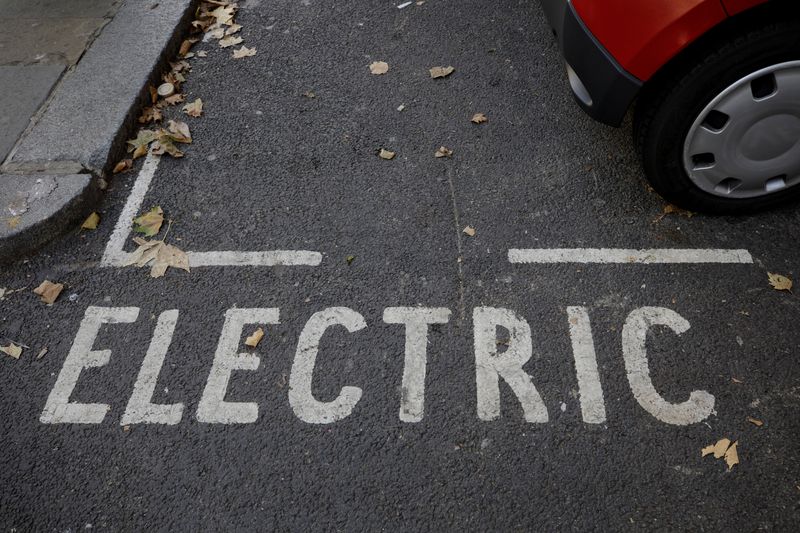By Colleen Howe
BEIJING (Reuters) -China's state planner has issued new rules on strengthening the integration of new energy vehicles with the electric grid, as the world's biggest electric vehicle market aims to manage its power demand amid the increase in battery charging.
The notice, published on Thursday by China's National Development and Reform Commission (NDRC), calls for the creation of initial technical standards governing new energy vehicle integration into the grid by 2025.
New energy vehicles will become an important part of the country's energy storage system by 2030, it said.
As electricity demand surges due to the increasing popularity of EVs, solutions are being sought by governments and other stakeholders to prevent power networks from being overwhelmed.
Researchers from the World Resources Institute found that in a high-growth scenario for Chinese EVs where major cities have more than 3 million on the street by 2035, car battery charging could increase peak power demand by nearly 12%, overwhelming the generation and transmission systems.
Charging during off-peak hours and "vehicle-to-grid" (V2G) charging, where millions of EV owners could sell their batteries' juice back to grid operators during peak hours, have been seen as potential solutions.
China is seeking to use those strategies to manage peak power demand through the integration of electric vehicles into the power system, according to the NDRC.
One way to do that is to encourage vehicles to charge when power demand is lower, such as in the middle of the night, using price signals.
The NDRC called on cities to implement time-of-using pricing for residential charging points, a "major breakthrough" according to Lulu Xue, urban mobility manager at World Resources Institute.
China's highly regulated electricity market is one reason it lags the U.S. and Europe in vehicle-grid integration, despite boasting the world's largest EV market.

By 2025, the state planner said it would set up over 50 pilot programmes in regions where conditions for vehicle-grid integration are relatively mature, including in the Yangtze River Delta, Pearl River Delta, Beijing, Sichuan and Chongqing.
The NDRC is also asking industry to develop batteries with a longer cycle life to support V2G charging. Current battery technologies degrade rapidly when used for V2G, which presents a barrier to public acceptance of the strategy, Xue said.